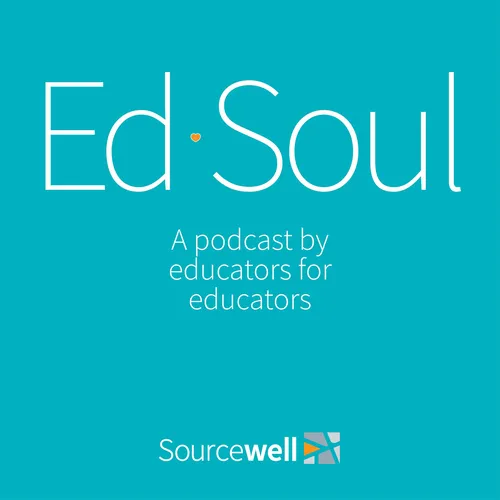Respect and Accountability Through an SEL Lens
- Author
- Lisa Worden
- Published
- Fri 08 Jul 2022
- Episode Link
- None
Support is accountability. The goal of SEL is developing young people into adults who are thriving intellectually, socially, emotionally, and professionally.
Unpacking the story
Rachel shares a story that begins with a student sleeping in class and ends with them in handcuffs.
- Why? What’s going on that they are falling asleep in the middle of the day?
- When woken, the student is likely to feel some form of dysregulated; how can I support this student? How would you want to be approached in this situation?
- “Are you okay?” instead of using accusatory language.
- Adjust your physical approach to be trauma-informed, and consider the other young people in the room.
Be careful of discipline/behavioral labels, they can be vague and subjective
- Noncompliant
- Defiant
- Disrespecting authority
- Aggressive behavior
- Truant
- “Inappropriate” language, behavior, gestures, etc.
- Disruptive
Prevent escalated responses
- Create spaces and systems where students are safely and appropriately thinking critically, asking questions, speaking up for injustices.
- Small behaviors can escalate quickly; every interaction with students has potential to either build or damage relationships. Responses to undesired behavior either help solve the problem or trigger the next level of escalation.
- Avoid power struggles; are behaviors wrong or unexpected?
- Discipline “wrap” and juvenile records; predetermined idea about “good kids” and “bad kids”.
- Rethinking healthy and unhealthy behaviors.
- Give a second chance and do not require eye contact when having difficult conversations.
Seek training for you and your fellow educators in restorative practices. When we know better, we can do better.
Examine polices for discipline and code of conduct
- Are responses punitive or supportive?
- Hats/hoods/dress code policies
- Removal, shame, and humiliation do not improve behavioral or academic outcomes
What about the adults?
Students and adults, alike, need systems of support in place. The school environment improves for everyone with the implementation of SEL. Student outcomes, especially reduced discipline referrals, suspensions, expulsions, mental health needs, and drug use. It increases academic outcomes, attendance and graduation rates, post-secondary enrollment and completion, engagement and attitudes about school, and abilities to manage stress and depression.
Questions or comments? Contact us as [email protected]
References and resources
Álvarez, B. (2021, October 9). School suspensions do more harm than good. NEA. Retrieved July 5, 2022, from https://www.nea.org/advocating-for-change/new-from-nea/school-suspensions-do-more-harm-good
Long, N. J., Wood, M. M., Fecser, F. A., & Whitson, S. (2021). Talking with students in Conflict: Life space crisis intervention (third). PRO-ED, Inc.
Minnesota Department of Education. (n.d.). Restorative Practices. Restorative practices. Retrieved July 6, 2022, from https://education.mn.gov/MDE/dse/safe/prac/
National Commission on social, emotional, and academic development. (n.d.). Social, Emotional, and Academic Development Fast Facts. The Aspen Institute. Retrieved July 5, 2022, from https://www.aspeninstitute.org/wp-content/uploads/2020/03/NCSEADInfographic_Final2.pdf
What does the res
Find more educational resources by topic at https://www.mn.sourcewell.org/education/podcast
Learn more about upcoming trainings and events for educators at www.mn.sourcewell.org/education
